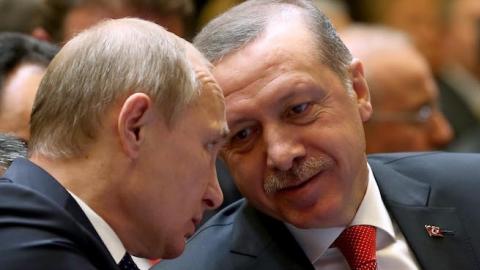The Financial Times outlines just how Turkey's rapprochement with Russia may play out in Syria—an important read:
Rebel-held eastern Aleppo looks as though it will either fall or be razed to the ground in the face of relentless Russian bombardment from the air and under siege from Iran-backed militia on the ground.
President Vladimir Putin will then have got his way: saving the regime of Bashar al-Assad inside a rump Syria, with the ruins of Aleppo marking its northern perimeter, as part of his reassertion of Russia’s credentials as a regional and global rival to the US.
But it is not just Mr Putin’s ruthlessness that will bring this about. It is Turkey’s tilt towards Russia and, to a degree, Iran, which is the main change in the strategic equation on the crowded battlefield of north-west Syria.
Obama handling of Syria continues to become more incoherent and more damaging to American interests. Putin has not only, thanks to White House dithering and irresolution, managed to reinsert Russia into Middle East politics in a spoiler role and his gains have not just included a deepening and commercially beneficial relationship with Iran and the weakening of the European Union and Merkel's leadership in it over the refugee issue; he has also, thanks to the incoherence of American policy, managed to drive a thick wedge into NATO by further alienating Turkey from the West and, especially Washington.
As for what a naive and vainglorious President Obama once (back in those days when he collected Nobel Peace Prizes and was hailed as the second coming of Abraham Licoln by a clueless and infatuated press corps) identified as a central goal of his foreign policy—the reconciliation of America with the Muslim world—his callous abandonment of the Syrian Sunnis to their increasingly genocidal foes has done as much, if not more, to tarnish America's reputation among Sunni Arabs than anything any of his predecessors managed to do going back to Harry Truman.
The issues in Syria are difficult and the alternatives are few, but President Obama's Syria policy is one of the shabbiest and sorriest displays of serial ineptitude that has unfolded in world politics in all these many years. That his emissaries and representatives attempt to cover the nakedness of their policy with grandiose rhetorical denunciation of the crimes that Obama's incompetence has enabled merely underscores the horrifying moral and political emptiness of the President's approach to world politics.


















